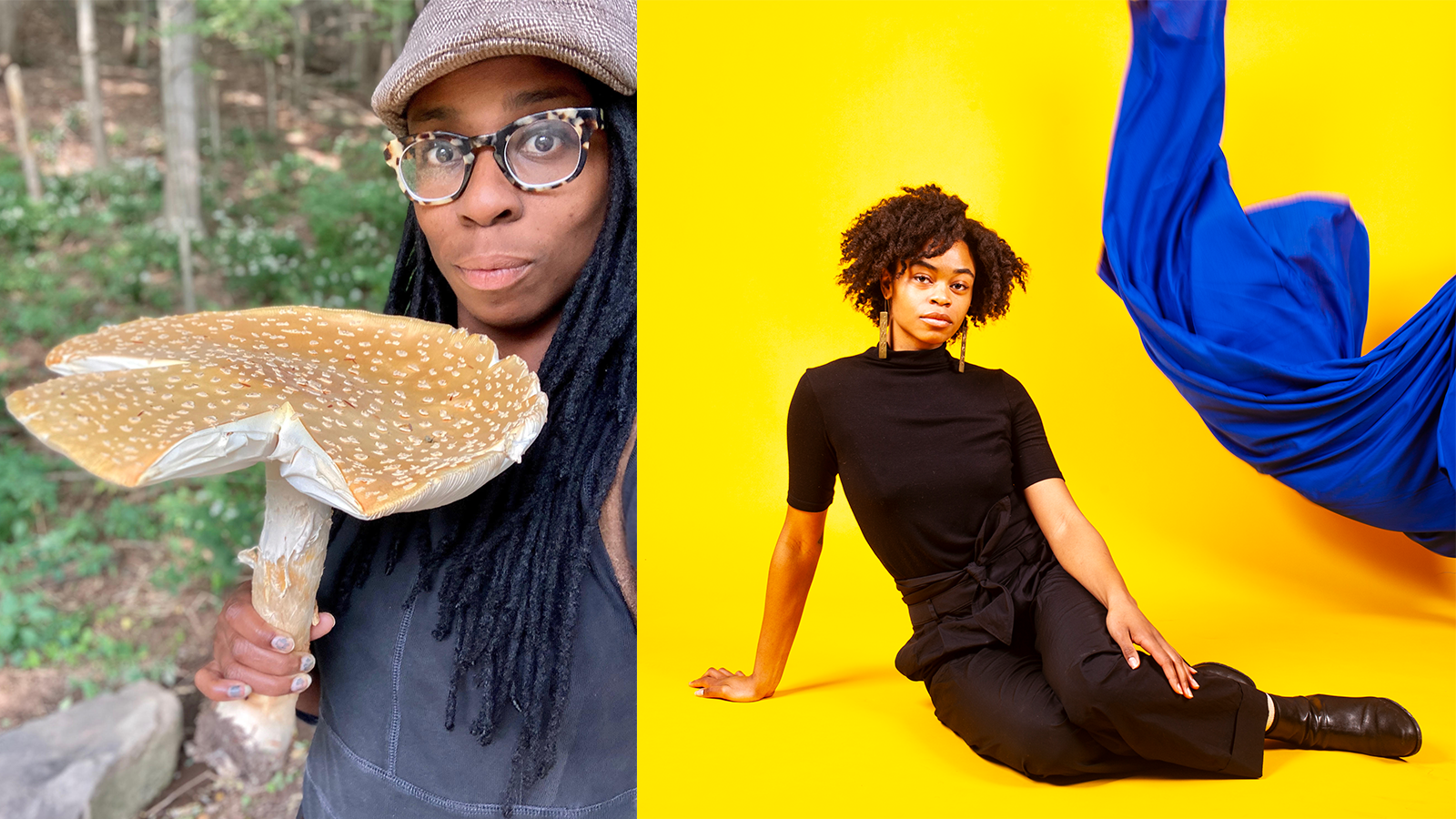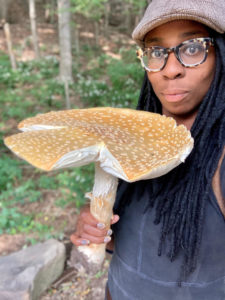 Featuring Nia Holley and Maria Pinto
Featuring Nia Holley and Maria Pinto Featuring Nia Holley and Maria Pinto
Featuring Nia Holley and Maria PintoSaturday, March 20, 3-4:30 p.m.
These Magic Hands: Black Feminist Learnings On Land And Food Sustainability
This program will be live streamed on March 20, at 3pm through our Youtube Channel!
Featuring: Nia Holley and Maria Pinto
Frederick Douglass writes of his grandmother, Betsey Bailey, in his memoir. Still enslaved, even into her old age, Betsy used her foraging and cultivation skills to get herself and her community by. She was so good at it that she became widely known for her “magic hands.” Though it may seem simple, it encapsulates the intersection of Black feminism and Black ecology well. Teona Wlliams from Yale University sums this up in one sentence in this 2020 lecture: “Black women envision dreams of abolition as linked to the earth.”
From Miriam Miranda in Honduras to Fannie Lou Hamer in the Deep South to Wangari Maathai in Kenya, land sovereignty and stewardship has always been entangled with liberation. For this second program in the Combahee Conversations series, writer and mycology enthusiast Maria Pinto along with artist and land rematriation advocate Nia Holley join CRC curator Arielle Gray to talk about the importance of “these magic hands” while exploring sustainable and equitable visions for BIPOC communities. How do Black and Indigenous communities work collectively towards land liberation? What does land and ecological justice look like for BIPOC? How do we honor the land we’re on? Whether you’re interested in learning about foraging mushrooms or you want to learn more about land rematriation, you won’t want to miss this essential conversation.
About our featured speakers

Maria Pinto is a Boston-area writer, mushroom enthusiast, editor, and educator. She teaches for the literary non-profit GrubStreet, reads fiction for The Drum and Peripheries Journal, and has been awarded fellowships by the Vermont Studio Center, The Writers’ Room of Boston, The Mastheads, and Garret on the Green. You can find her work at publications like Frigg, Necessary Fiction, and Cleaver, you can find her singing loud whenever she passes under a bridge, and, when the season’s right, you can find her filling her skillet and camera roll with fungal fruiting bodies.
Follow Maria at @ravensgrace

Nia Holley is an interdisciplinary artist whose work is deeply influenced by what survival and healing look like within Black and Indigenous communities. Her work ranges from printmaking, ceramics, metalsmithing, and traditional arts to bringing tribal communities together around food justice, agroecology, land, and history. She strives to cultivate relationships across tribal borders to rebuild a more inclusive and historical process of kinship and survival. She has actively engaged with Indigenous-led grassroots organizations as an outreach and project coordinator and has participated in Nipmuc programs since before she could walk and talk. Nia is a co-founder of the Eastern Woodlands Rematriation Collective.
Follow Nia at @workswithnia
Combahee Conversations
Combahee Conversations is a series of FREE online dialogs organized by co-curators Arielle Gray, Cierra Peters, and Jen Mergel as part of the rolling citywide public art project Combahee’s Radical Call: Black Feminisms (re)Awaken Boston. To amplify the call-and-response nature of the commissioned art and to support values of tenderness and “sistering,” these Saturday afternoon coffee chats are offered as open and safe spaces to more deeply explore ideas shared by featured creatives and cultural innovators focused on Black Feminism(s). Selected speakers and themes will align with learnings available in the project’s related Virtual Reading Room.
Combahee’s Radical Call: Black Feminisms (re)Awaken Boston is organized by co-curators Arielle Gray, Cierra Peters and Jen Mergel. The project was made possible with funding by the New England Foundation for the Arts’ Public Art for Spatial Justice Program, with funding from The Barr Foundation. This project is also supported by grants from the Emily Hall Tremaine Foundation and the Krupp Family Foundation funds to the Curatorial Network Accelerator of Boston.